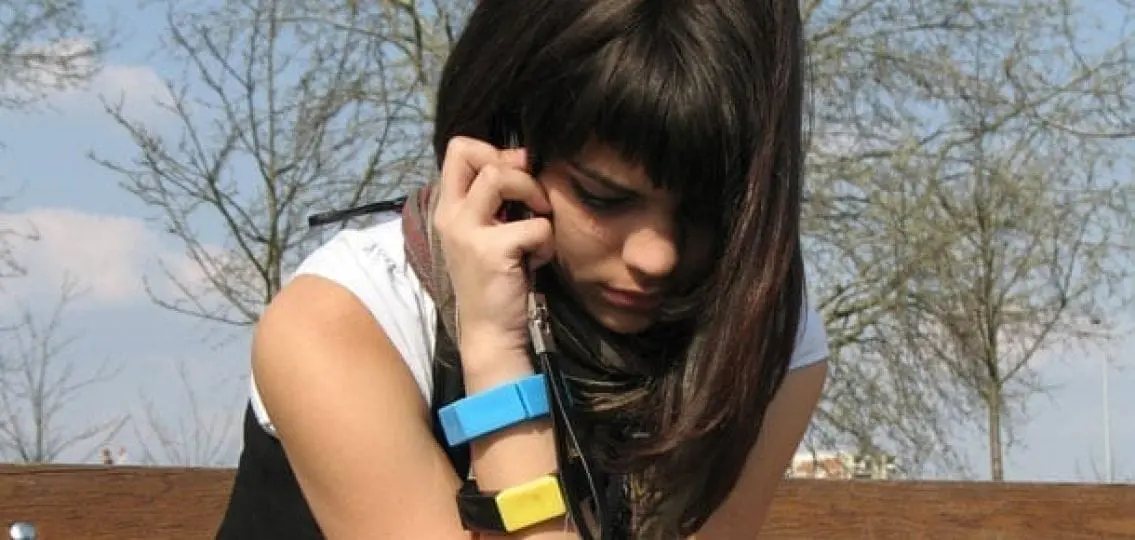I began running in high school. And I kept running because, for once, I felt really good at something. I was truly proud of my commitment. I’d never felt happier than when I was crossing the finish line and getting a trophy or a medal, a tangible measure of my hard work and dedication. But my happiness was fleeting. My runner’s high faded quickly.
Beating High School Depression
I had turned running into a high-pressure activity and I was at my breaking point. I was burnt out. So, in the middle of my senior year I drove my car to my high school and parked somewhere new. I walked the oval to get to the gym and sat on the window ledge waiting. I was waiting for the sadness to go away and for my happiness to return. Ultimately, I was waiting for my coach to arrive so I could quit the one sport that I used to think made me happy.
My quitting came as a shock to people. I was known as the “runner girl.” I was expected to run in college and I just let it all go. Instead, I let my running shoes sink to the back of my closet and I let my medals and trophies fall into boxes stored in my attic. I wanted every memory of my running career to slip away because they represented too much pain and sorrow.
I had held a false belief that as the best runner on my team, I would make great friends, memories, and joy. Instead, it brought me to a leather couch in a therapist’s office.
Every week I would go and sit on that couch questioning why I was there. I didn’t think I was sick, and I really didn’t need medication. But my sadness had apparently turned into depression.
Teen Depression In School
In today’s culture, the slightest bit of melancholy in a teenager can be seen as depression. If a young person sleeps too much or too little, many parents go into diagnosis mode and think their child is clinically depressed. Clinical Psychologist Dr. Louise Hayes states that only 3%-8% of adolescents are clinically depressed. I didn’t think I was one of the 3-8%.
I was overwhelmed. Like most teenagers, I was carrying a stressful load. High school wasn’t easy, making friends was a daily challenge, applying to college was a commanding force in my life, and I was expected to juggle all of that with a brave face and a positive attitude. Many times, I would go to the nurse’s office or a private room in my school and just cry because the load on my back was too heavy.
So was I experiencing depression or just sad? I guess both. My sadness came and went throughout all four years of high school. But my depression in high school lasted for a shorter period of time. My depression wasn’t a result of bad grades or test scores; it was the culmination of every hidden tear and stressful moment. I let everything drag me down as I spiraled out of control. Yes I had ups and downs but my downs were very deep and dark and my ups were never that high.
My Experience With Depression
I was treated for depression in high school but I never went on antidepressants or other medications. I stayed in Cognitive Behavioral Therapy for almost a whole year. Although, I never felt as depressed as people believed I was. I fought the doctors and adults who wanted to put me on medication because I knew that my depression was a state caused by the strenuous effects of average adolescence.
So I quit running and I began to value new things, more important things. Today, I am in college, so I can say I valued myself enough to get better and make it to this day. I have never been happier. I learned from the show One Tree Hill that “happiness is a mood not a destination.” I won’t always be happy, so I enjoy it when I have it and am learning to find it when it slips away. Every day may not be good but there is something good in everyday.
So parents, when you see your child is upset or sad, don’t jump to the conclusion that they need medication for depression. Take the time to see what could be causing those dark periods. Our teenage lives are filled with hardship and struggles. But remember, for many of us, our smile will fade and return—without medication.




